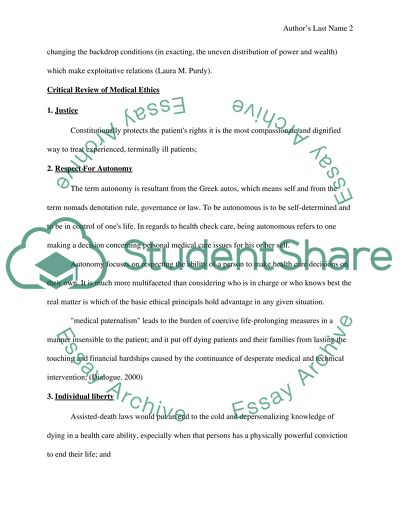Cite this document
(“Medical ethics Essay Example | Topics and Well Written Essays - 1500 words”, n.d.)
Medical ethics Essay Example | Topics and Well Written Essays - 1500 words. Retrieved from https://studentshare.org/miscellaneous/1540032-medical-ethics
Medical ethics Essay Example | Topics and Well Written Essays - 1500 words. Retrieved from https://studentshare.org/miscellaneous/1540032-medical-ethics
(Medical Ethics Essay Example | Topics and Well Written Essays - 1500 Words)
Medical Ethics Essay Example | Topics and Well Written Essays - 1500 Words. https://studentshare.org/miscellaneous/1540032-medical-ethics.
Medical Ethics Essay Example | Topics and Well Written Essays - 1500 Words. https://studentshare.org/miscellaneous/1540032-medical-ethics.
“Medical Ethics Essay Example | Topics and Well Written Essays - 1500 Words”, n.d. https://studentshare.org/miscellaneous/1540032-medical-ethics.


